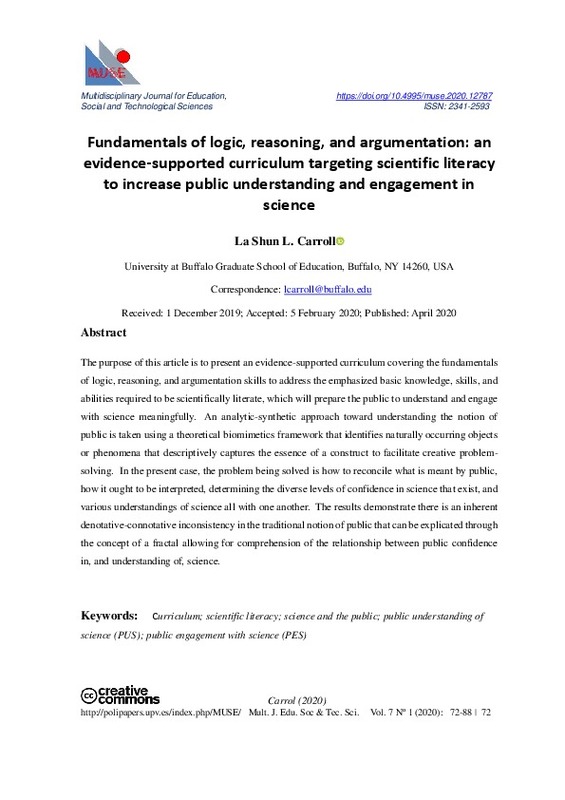JavaScript is disabled for your browser. Some features of this site may not work without it.
Buscar en RiuNet
Listar
Mi cuenta
Estadísticas
Ayuda RiuNet
Admin. UPV
Fundamentals of logic, reasoning, and argumentation: an evidence-supported curriculum targeting scientific literacy to increase public understanding and engagement in science
Mostrar el registro completo del ítem
Carroll, LSL. (2020). Fundamentals of logic, reasoning, and argumentation: an evidence-supported curriculum targeting scientific literacy to increase public understanding and engagement in science. Multidisciplinary Journal for Education, Social and Technological Sciences. 7(1):72-88. https://doi.org/10.4995/muse.2020.12787
Por favor, use este identificador para citar o enlazar este ítem: http://hdl.handle.net/10251/143529
Ficheros en el ítem
Metadatos del ítem
| Título: | Fundamentals of logic, reasoning, and argumentation: an evidence-supported curriculum targeting scientific literacy to increase public understanding and engagement in science | |
| Autor: | ||
| Fecha difusión: |
|
|
| Resumen: |
[EN] The purpose of this article is to present an evidence-supported curriculum covering the fundamentals
of logic, reasoning, and argumentation skills to address the emphasized basic knowledge, skills, and
abilities ...[+]
|
|
| Palabras clave: |
|
|
| Derechos de uso: | Reconocimiento - No comercial - Sin obra derivada (by-nc-nd) | |
| Fuente: |
|
|
| DOI: |
|
|
| Editorial: |
|
|
| Versión del editor: | https://doi.org/10.4995/muse.2020.12787 | |
| Tipo: |
|









